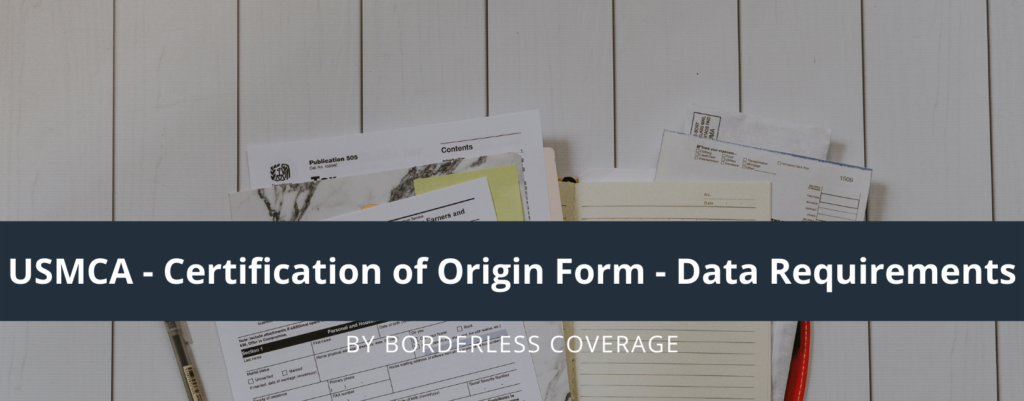Blog
USMCA – Certification of Origin Form – Data Requirements

Chapter 5 of USMCA details nine specific requirements that must be provided by an importer or exporter seeking preferential tax treatment under the agreement. These nine data requirements are used by customs to validate that the goods claiming this treatment meet the entirety of the prerequisites in Chapter 5 of USMCA Origin Procedures.
The first data element required by USMCA is a Certification of Origin by the importer, exporter, or producer, used to indicate that the certifying party satisfies the conditions of a certifier. The second piece of data specifies the certifier by providing the certifier’s name, title, address, telephone number, and e-mail address. The next three necessary data elements ask the same basic information of the exporter, importer, and producer, barring that the certifier is one of these.
After filling out the first portion of the Certification of Origin, a description of the good is asked of the certifier. While there is no one format for the description, it accompanies a HS Tariff Classification of the Good, or a six-digit code that classifies the good. This code belongs to a system that helps customs worldwide to uniformly categorize goods. The next requirement is the Origin Criteria, in which the certifier must confirm that the good meets the criteria set aside in Article 4.2 of USMCA, or the Rules of Origin. The Certification must then describe the blanket period, or the period of time that the Certificate is meant to cover. If repeated shipments of the same good are going to be made, the blanket period can be up to one year. Finally, the Certification of Origin must be signed and dated with a pre-written statement that recognizes that the information provided on the certificate is both accurate and true. If not, responsibility is given to the signee.
Borderless Coverage can facilitate the completion of the Certification of Origin so that the exchange of information between different parties is done properly and timely. Our group of experts can help you certify the form and receive the preferential tax treatment that is so paramount when shipping goods across North American borders.
